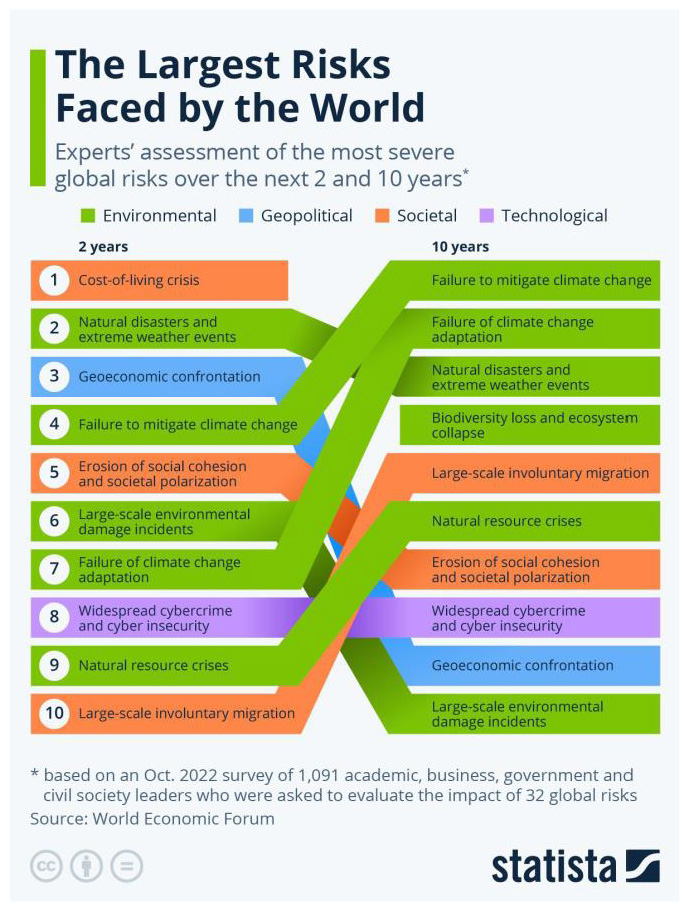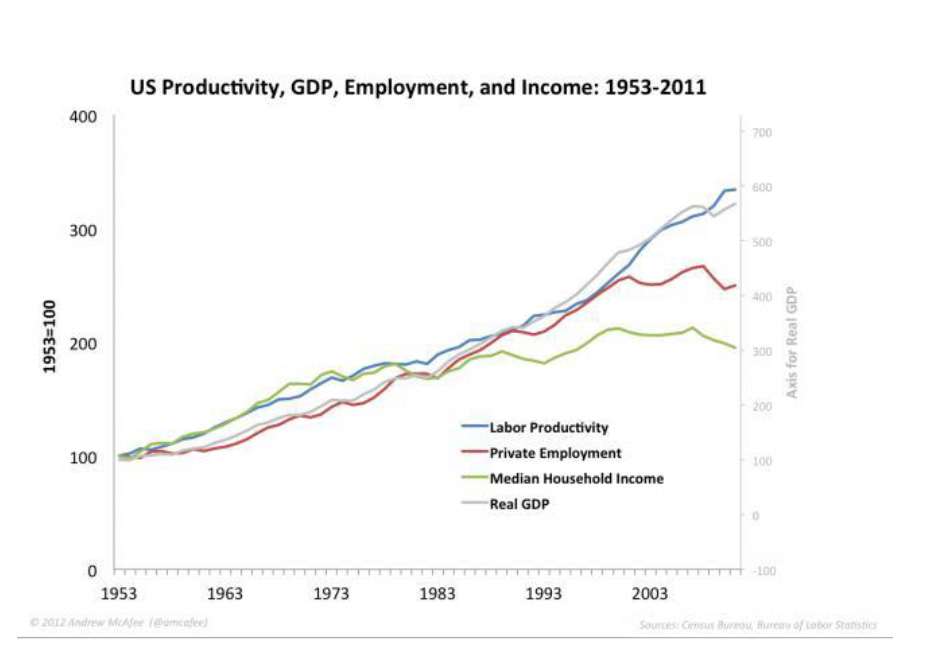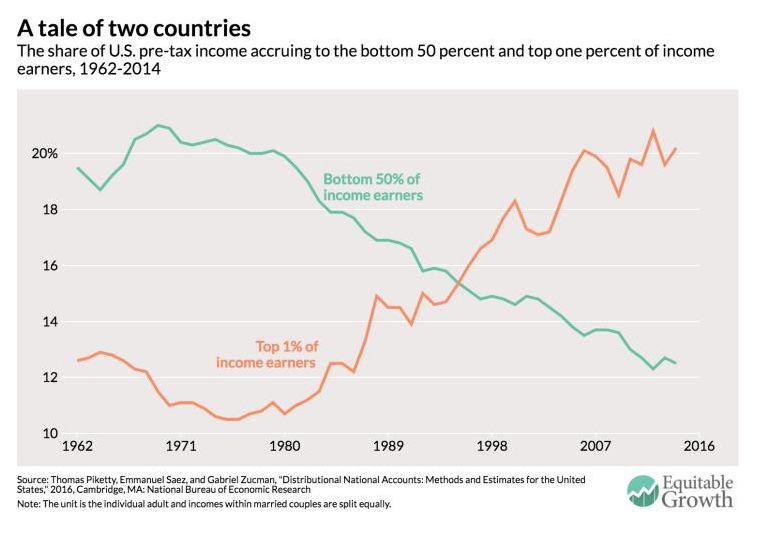An evening with Dr Moshe Y. Vardi
On November 17, we had an insightful session by Dr Moshe Y. Vardi . He spoke on “How to be an ethical technologist.”
About Dr Moshe Y. Vardi
Dr Moshe Y. Vardi is University Professor, Karen Ostrum George Distinguished Service Professor in Computational Engineering at Rice University, where he is leading an Initiative on Technology, Culture, and Society. His interests focus on automated reasoning, a branch of Artificial Intelligence with broad applications to computer science, including machine learning, database theory and computational-complexity theory. He is also a Faculty Scholar at the Baker Institute for Public Policy at Rice University.
Dr Vardi is the author and co-author of over 750 papers, as well as two books: Reasoning about Knowledge and Finite Model Theory and Its Applications. He is the recipient of three IBM Outstanding Innovation Awards, the ACM SIGACT Goedel Prize, the ACM Kanellakis Award, the ACM SIGMOD Codd Award, the Blaise Pascal Medal, the IEEE Computer Society Goode Award, the EATCS Distinguished Achievements Award, the Southeastern Universities Research Association's Distinguished Scientist Award, the ACM SIGLOG Church Award, the Knuth Prize, the ACM Allen Newell Award, and IEEE Norbert Wiener Award for Social and Professional Responsibility.
Dr Vardi is a Fellow of the American Association for the Advancement of Science, the American Mathematical Society, the Asia-Pacific Artificial Intelligence Association, the Association for the Advancement of Artificial Intelligence, the Association for Computing Machinery, the European Association for Theoretical Computer Science, the Institute for Electrical and Electronic Engineers, and the Society for Industrial and Applied Mathematics. He is a member of the US National Academy of Engineering and National Academy of Science, the American Academy of Arts and Science, the Royal Society of London, the European Academy of Science, and Academia Europaea.
Dr Vardi holds nine honorary titles. He is a Senior Editor of Communications of the ACM, the premier publication in computing, after having served for a decade as Editor-in-Chief.
The biggest risks today
The biggest risks (see exhibit below) due to computing we face today are lack of social cohesion and cybercrime.

Dr Vardi recalled a panel discussion he had attended. Exxon, the oil giant was a part of the deliberations. Exxon was aware of climate change, as early as 1977, eleven years before it became a public issue! What had the company to say about this? But the Exxon panelist responded: “I cannot comment on that”. Exxon equated ethics with not cheating or lying or stealing. Clearly, we need a broader view of ethics.
A decade in computing
2012 marked the Turing Centenary. It was a celebration of computing. 2017 marked 50 years of the Turing Award, considered to be the Nobel prize in computing. Again, it was a celebration of computing. In 2022, ACM completed 75. The earlier euphoria had reduced. The mood was more sober and sombre. The adverse societal impact of technology had become a key concern.
Meanwhile several recent incidents indicate that social cohesion is reducing, and divisiveness is increasing.
On Jan. 6, 2021, the supporters of President Trump invaded Capitol Hill. Consider the deep divide between the Republicans and the Democrats in the US. According to a New York Times poll on 7/13/2022, 92% of Democrats think that Trump threatened US democracy. On the other hand, 76% of Republicans think he was exercising his right to contest the election.
On May 24, 2022, 21 people were killed by a gunman in Uvalde, TX. When it comes to support for banning the sale of AR-15-style semi-automatic rifles (NPR survey, June 2022), shortly after the massacre, Democratic gun owners were in favour (84%), while Republican gun owners were against (75%). This kind of polarization increases the risk of political paralysis and puts democracy in danger.
S. Simon and J. Stevenson wrote in NYRB, September 2022: Will the USA Break apart into red (Republican strongholds) and blue confederacies (Democratic strongholds)?
In June 2022, the Republican Party of Texas at its annual convention called for a voter referendum on “whether or not the State of Texas should reassert its status as an independent nation.”
The IBM PC
1981 was an important year. On Aug. 12, 1981, the IBM Personal Computer Model 5150 (“IBM PC”) was launched. On January 20, 1981, Ronald Reagan was sworn in as US president. Both were landmark events. In January 1983, TIME recognized the PC as the machine of the year, going against the tradition of the person of the year. The launch of the PC led to a tsunami of technology. In the mid-80s, the slogan was: a computer on every knowledge-worker’s desk. In the late 80s, it was: a computer in every knowledge worker’s home. In 1989, the world wide web took off. In 1995, the Internet went commercial. In 1998, Google was launched, in 2004, Facebook and in 2007, iPhone. Today, many of us are carrying a powerful computer in our pocket.
The rise of neoliberalism
President Reagan symbolized the arrival of neoliberalism. This is an extreme form of market economy. Neoliberalism is free-market capitalism generally associated with economic liberalization, reduction in government spending, privatization, deregulation, monetarism, tax reduction, globalization, and free trade. In November 2006, Warren Buffet admitted: “There’s class warfare, all right, but it’s my class, the rich class, that’s making war, and we’re winning.”
The great decoupling
As the graph below indicates, productivity increase and GDP growth have not led to a proportionate creation of jobs in the US. A rising tide does not lift all boats equally.

Growing inequality
As the graph below indicates, there is growing inequality. In 1962, the bottom 50% earned about 20% of the total income and the top 1% about 12%. In 2016, this was reversed. The top 1% earned about 20% and the bottom 50% about 12% of the total income.

A conservative journalist David Brooks, admitted in the New York Times, on 7/21/2022: “The most educated Americans were amassing more and more wealth, dominating the best living areas, pouring advantages into their kids. A highly unequal caste system was forming.”
Cognitive polarization
The Fairness Doctrine required holders of broadcast licenses, i.e. the channels to present controversial issues of public importance in a manner that fairly reflected differing viewpoints. In 1987, the Doctrine was abolished by the US Federal Communications Commission. The rationale was the proliferation of cable-TV channels. But people do not usually switch channels. They tend to stick to one channel. Once they start watching a channel regularly, their views become distorted depending on the bias of the channel. Again, the result is a cognitive bubble.
The internet
The early days of the Internet (the early 1980s) were marked by an emphasis on democratization of information. A counterculture, commonly described as hippie and anti-establishment in its outlook, took shape.
Larry Brilliant and Stewart Brand partnered to create a stimulating online community called the WELL. (The Whole Earth Electronic Link). They realized the power of online discussion groups. The WELL became a thoughtful, intimate community that discussed a range of topics.
USENET was another worldwide distributed discussion bulletin board. USENET began in 1979 when two graduate students at Duke University, Tom Truscott and Jim Ellis, came up with a way to exchange messages and files between computers. Steve Bellovin, a graduate student at the University of North Carolina at Chapel Hill wrote the software that controlled this first version of USENET.
When the world wide web took off, the mantra was: “Information wants to be free!” The Web was expected to enable the unfettered public sharing of information. But how to find information on the Web? Various solutions emerged.
Solution 1: Directory (Yahoo) –did not scale! As information exploded, it was difficult to catalogue everything on the internet.
Solution 2: Early search Engine (e.g. Altavista) –was not very effective.
Solution 3: Good search Engine (Google) – turned out to be really good.
As Google became the dominant search engine, the next question came: How do we monetize free information? The logical response was advertising, an idea copied from the newspapers and television. But online advertising effectiveness was quite low. So, a new solution emerged: micro-targeted advertising –match ads with individual preferences. But this meant the need for personal data! The result was ML on Steroids: targeted advertising and content based on personal data/preferences. This led to an even bigger cognitive filter bubble.
Facebook’s engagement engine is another great example of ML on Steroids: Facebook had moderate content with a single goal –maximize user engagement. The objective was to keep the audience hooked. It was essentially Nano-targeting of users based solely on their perceived interests, i.e. show people the content that they want to see. The social media evolved into addiction by design:
Dr Vardi referred to the Ender’s Game, (based on the novel of Orson Scott Card, 1985, a science fiction novel). The Ender's team engages in a series of computer-simulated battles. They think they are playing a game and eventually destroy the enemy's planet. Then they learn then that the battles were very real and a real planet has been destroyed. This novel is a good metaphor for where technology is heading today.
The public good
It is time to recall the ideals of the founders of the nation. The purpose of the US is to promote the public good. The constitution is the mechanism to enable this. As the US constitution says: We the People of the United States, in Order to form a more perfect Union, establish Justice, insure domestic tranquillity, provide for the common defence, promote the general Welfare, and secure the Blessings of Liberty to ourselves and our Posterity, do ordain and establish this Constitution for the USA.
It is the social responsibility of Computer Science (CS) educators to educate socially responsible students! Social responsibility must be part of the CS curriculum.
According to the ACM Code of Ethics: “Computing professionals' actions change the world. To act responsibly, they should reflect upon the wider impacts of their work, consistently supporting the public good.
The world’s first programmer, Ada Lovelace (1815-1852) wrote: “I wish to add my mite towards expounding & interpreting the Almighty, & his laws & works, for the most effective use of mankind.” (In contrast, Lovelace’s collaborator, Charles Babbage was focused on making money.)
Dr Vardi has proposed an oath for technologists: I solemnly pledge always to reflect upon the wider impacts of my work, consistently supporting the public good.
Technology and humanity
"The true problem of humanity is the following: we have paleolithic emotions, medieval institutions, and the technology of gods". Edward O. Wilson (1929-2021)
Dr Vardi has proposed: Today’s technology is taking advantage of our paleolithic emotions and medieval institutions!
We must not allow technology to control our lives. We should not be driven by technology. We should drive it. This is an idea that Dr Vardi has borrowed from BMW.
Vienna Manifesto on Digital Humanism
This Manifesto, signed by over 1000 leaders worldwide, is a public call to deliberate and act on technological development. “We must shape technologies in accordance with human values and needs, instead of allowing technologies to shape humans. Our task is not only to rein in the downsides of information and communication technologies, but to encourage human-centered innovation. “
The Digital Humanism Initiative
The Digital Humanism Initiative is an international collaboration seeking to build a community of scholars, policy makers, and industrial players who are focused on ensuring that technology development remains centred on human interests.
Back to ethics: What the Talmud says
It is time we embraced some of the spirituality and wisdom of the past.

Q&A
It is unfortunate that Prime Minister Margaret Thatcher (who had a similar philosophy like Reagan) once remarked:
I think we have gone through a period when too many children and people have been given to understand ‘I have a problem, it is the Government’s job to cope with it!’ or ‘I have a problem, I will go and get a grant to cope with it!’ ‘I am homeless, the Government must house me!’ and so they are casting their problems on society and who is society? There is no such thing! There are individual men and women and there are families, and no government can do anything except through people and people look to themselves first.
It is important to take care of ourselves. But doing only that is not a good idea. We must balance our interests with those of others. Consider voting. We may think it is a waste of time with little or no returns for the time spent. But it is important to vote. Otherwise, democracy will fail. We must keep asking ourselves: What is our contribution to the world?
We are also responsible for our emotions. To get angry is our decision. We are responsible for our attitude. But others should also be considerate. We should never ignore our impact on the world.
The impact of modern technology is already evident. Carbon-based fuels marked one of the most important discoveries of mankind. But these fuels have led to global warming. We have seen the hottest summer on record. Ironically, this has been described as the coolest summer for the next 100 years!
While technology can make life convenient, it should not be taken too far. Consider Facebook’s promise of frictionless sharing. Eliminating all friction is not a good idea. For example, without friction, tires will not work. So, whether friction is good or bad, is contextual. Email eliminated friction in communication. But the days of postal letters were livelier. We would send them occasionally, but each letter had something interesting. But today, we exchange so many emails with little meaningful content.
Technology can be put to good use. But thoughtless implementation is not a good idea. The negative impact of technology on society must not be ignored.
There are two types of legal systems:
- Normal legal system: This refers to laws passed by the legislature in a democratic way.
- Shadow legal system: These are legal contracts based on click through conduct.
To eliminate friction, we are encouraged by the tech companies to check the box and click. (Otherwise, we would have to read many pages of legal text.) The click through system makes the industry free from any liability. It is time to declare any agreement based on click through conduct as null and void. Tech companies have enjoyed blanket immunity for a long time thanks to the click through conduct of users. It is time we took this banket immunity away.
To be ethical means being willing to pay the price. Most claims by companies of being ethical are Public Relations exercises. Microsoft execs have often boasted that they evaluate all their decisions using a deliberate process. Yet when they found they were lagging behind in AI, they made a quick investment in Open AI. So, all the earlier promises of Microsoft fell by the wayside. At Google, where the motto was not to be evil, employees who speak up against the company’s unethical practices are fired.
Just like appliances have labels for energy consumption, we need regulation for AI. When the auto industry took off, following the launch of Model T, a National Transportation Safety Bureau was set up. We do not have such safety standards for AI.
Facebook is a good example of how safety has not been taken seriously in the domain of AI. CEO Mark Zuckerberg once wrote, "We have a saying. 'Move fast and break things.' The idea is that if you never break anything, you're probably not moving fast enough." This kind of culture is clearly detrimental to the safe use of technology.
Both over-regulation and under-regulation need to be avoided. We must strike the right balance. Capitalism is creative. We must regulate it in such a way that the creativity is sustained while the loopholes cannot be exploited.
We need to think collectively and regulate AI. There is a need for international collaboration. We need an AI treaty. When nations come together, big problems can be addressed. A good example is the depletion of the ozone layer.
Many AI luminaries have been aware of the implications but have not taken responsibility. Recently, the father of Deep learning, Geoff Hinton resigned from Google on account of the damage caused by AI. But he worked there for 10 years. The fact is that if tech luminaries are working for a company, they are endorsing what the company is doing.
Murphy’s law says that anything that can go wrong will. If a law can be broken, people will break the law. Cryptocurrencies are underregulated. Moreover, crypto consumes a lot of energy, leading to global warming. There is something wrong with creating more money by putting carbon in the atmosphere. Proof of work (which leads to more processing) should be banned.
Under-regulation of financial markets can lead to crises. We saw this in 2000 during the dotcom bust and again in 20o8 during the global financial crisis. Money supply if wrongly regulated can lead to inflation or deflation. We must find the right balance. Crypto in effect determines money supply and crypto is underregulated.
Ethics starts with protecting the weak (for example widows and children as mentioned in the Bible). About 35 years back, an employee who was reporting to Dr Vardi, was doing good work. Dr Vardi’s manager wanted to convey that he (the employee) was not effective. Dr Vardi pushed back, and the manager also did not press further. The employee won an award 25 years later. When we choose to be ethical, we are taking a risk. We must assess our ability to take risk. But on some occasions, we must do the right things even if it means paying the price.
Dr Vardi got his aha moment about 12 years back, when he saw IBM Watson beating a human competitor in the game of jeopardy. He started thinking: Has AI gone too far? What does it mean for humanity? What does it mean for the labour markets? That is what has driven his research. In 2016, the impact of social media became clear. As time went by, more evidence of the negative consequences of technology emerged.
Tech companies are gathering a lot of data about us. Each grain of data is small. But eventually the small grains add up other to form a heap. As Stephen Read has written,

While we know little about the tech companies, they know a lot about us. This breach of privacy has been enabled by the shadow legal system. The tech companies gather a pixel at a time. Eventually, our picture is leaked out. It is difficult to live without a smart phone today. So we must take steps to reclaim our privacy. Ironically, enough, someone like Mark Zuckerberg has built a moat around his home to protect his own privacy.
Power corrupts. Absolute power corrupts absolutely. Governments can become corrupt if given too much power. Democracy is important. Winston Churchill once said that: “Democracy is the worst form of government – except for all the others that have been tried.”.
We must be able to regulate the regulator as well. Governments should not become too powerful.
Building awareness and teaching values starts at school. Open discussions can help. Dr Vardi’s son was being teased by some classmates. His wife requested permission from the teacher to talk to the class. She asked the class: is anyone afraid of being teased? Everyone felt bad. There was an open discussion and soon the teasing stopped.
Reciprocity is very important. We must treat others how we want to be treated. We must teach children values like empathy at school. But today, there is a lot of divergence in society when it comes to values. So, there is hard work ahead.
Building a value system is difficult especially with a distributed workforce. When people are not even coming to the office, how do we create shared values? Thinking about the problem is the first step. When there is a comprise of ethics, we should make it a point for discussion. To put ethics above business/money, we need a different type of culture.
